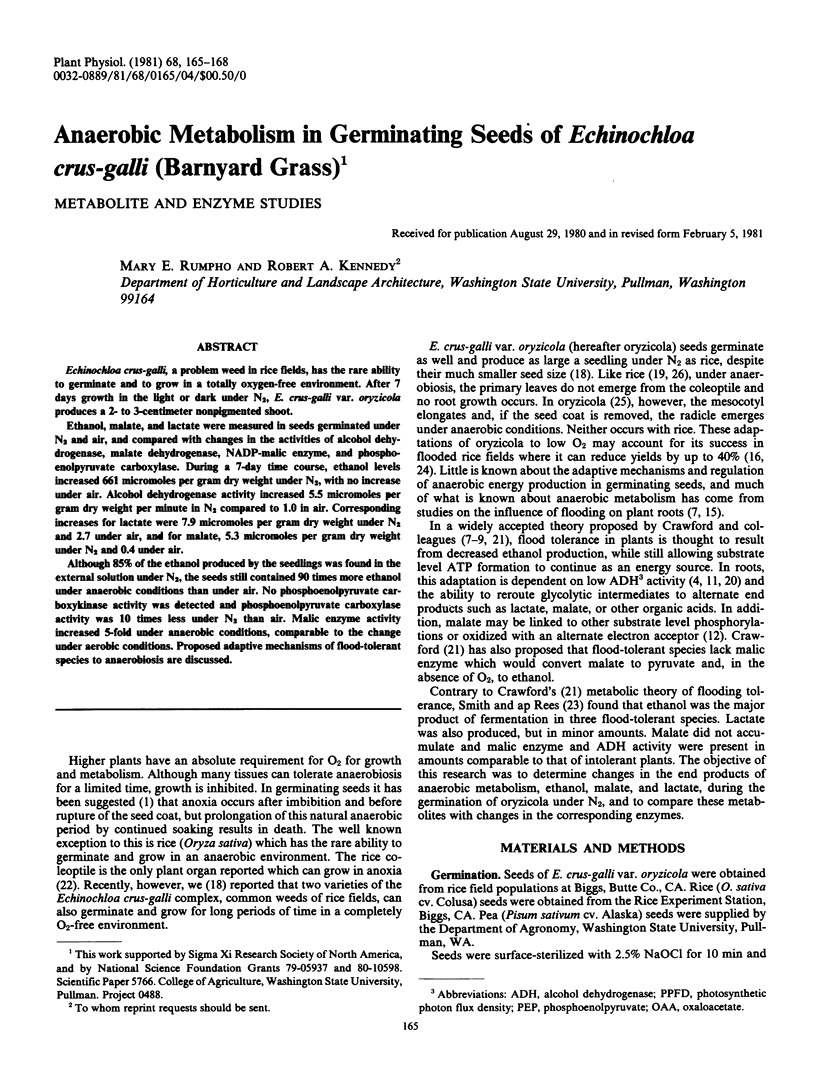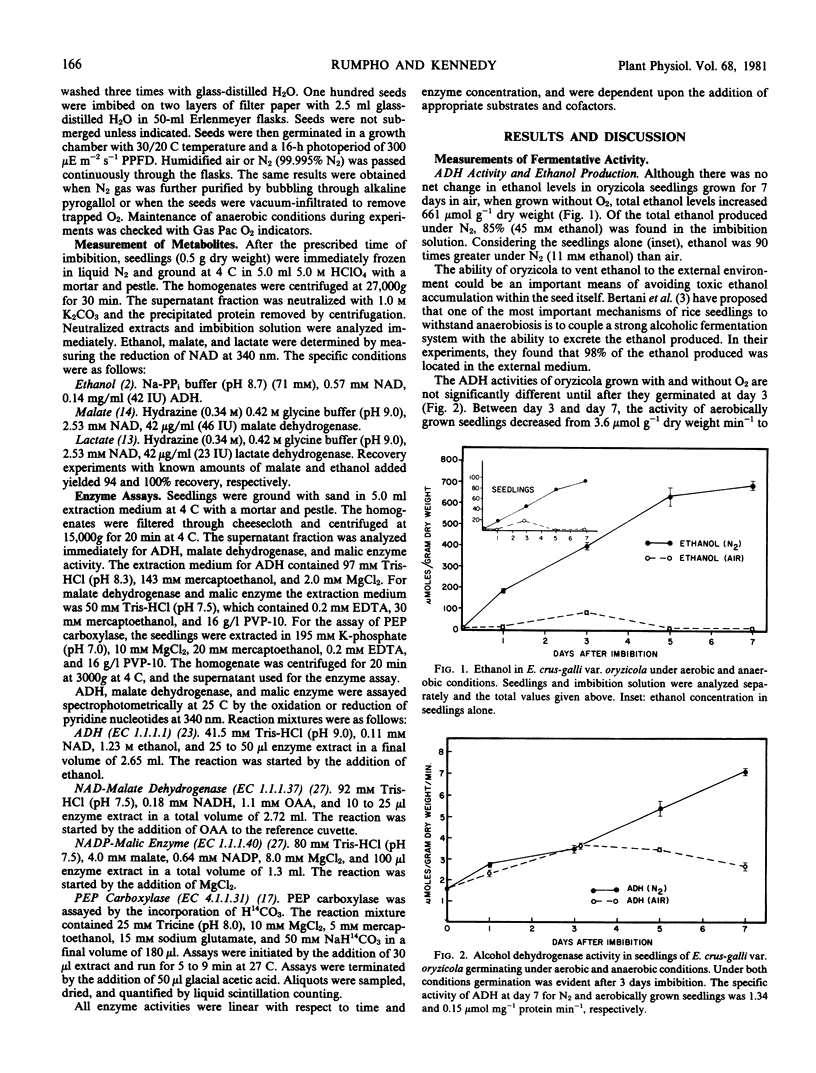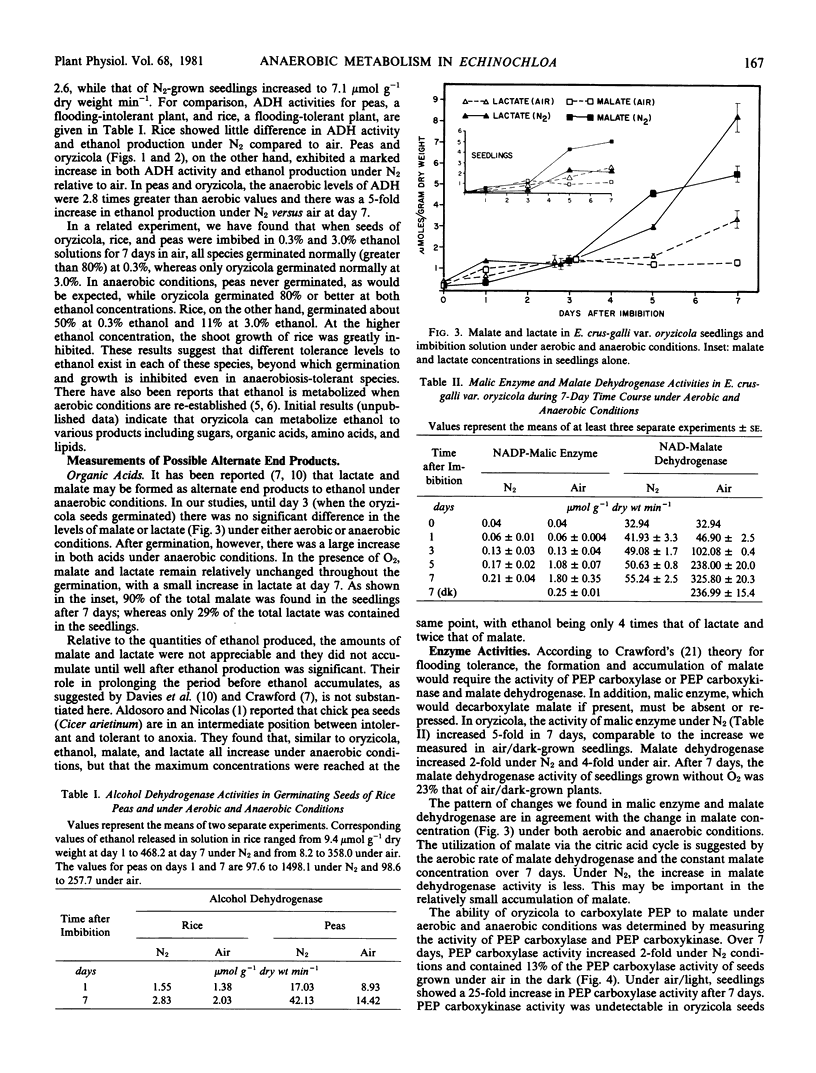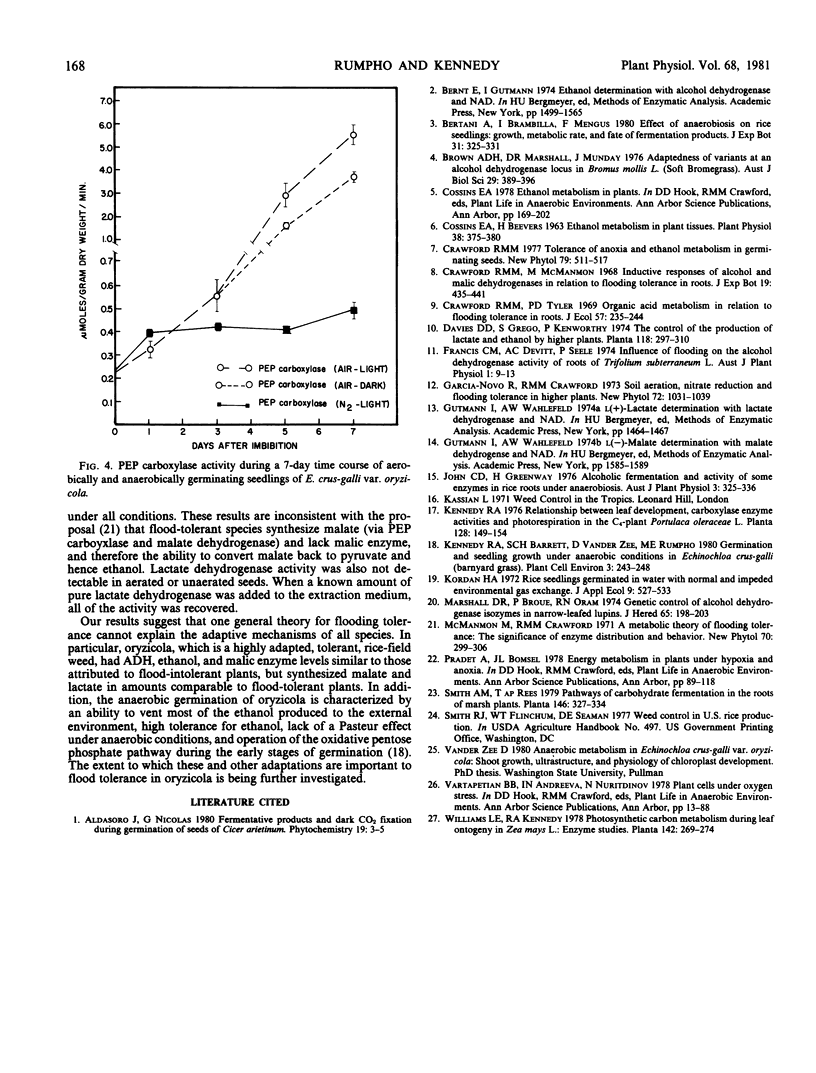Abstract
Echinochloa crus-galli, a problem weed in rice fields, has the rare ability to germinate and to grow in a totally oxygen-free environment. After 7 days growth in the light or dark under N2, E. crus-galli var. oryzicola produces a 2- to 3-centimeter nonpigmented shoot.
Ethanol, malate, and lactate were measured in seeds germinated under N2 and air, and compared with changes in the activities of alcohol dehydrogenase, malate dehydrogenase, NADP-malic enzyme, and phosphoenolpyruvate carboxylase. During a 7-day time course, ethanol levels increased 661 micromoles per gram dry weight under N2, with no increase under air. Alcohol dehydrogenase activity increased 5.5 micromoles per gram dry weight per minute in N2 compared to 1.0 in air. Corresponding increases for lactate were 7.9 micromoles per gram dry weight under N2 and 2.7 under air, and for malate, 5.3 micromoles per gram dry weight under N2 and 0.4 under air.
Although 85% of the ethanol produced by the seedlings was found in the external solution under N2, the seeds still contained 90 times more ethanol under anaerobic conditions than under air. No phosphoenolpyruvate carboxykinase activity was detected and phosphoenolpyruvate carboxylase activity was 10 times less under N2 than air. Malic enzyme activity increased 5-fold under anaerobic conditions, comparable to the change under aerobic conditions. Proposed adaptive mechanisms of flood-tolerant species to anaerobiosis are discussed.
Full text
PDF



Selected References
These references are in PubMed. This may not be the complete list of references from this article.
- Cossins E. A., Beevers H. Ethanol Metabolism in Plant Tissues. Plant Physiol. 1963 Jul;38(4):375–380. doi: 10.1104/pp.38.4.375. [DOI] [PMC free article] [PubMed] [Google Scholar]


